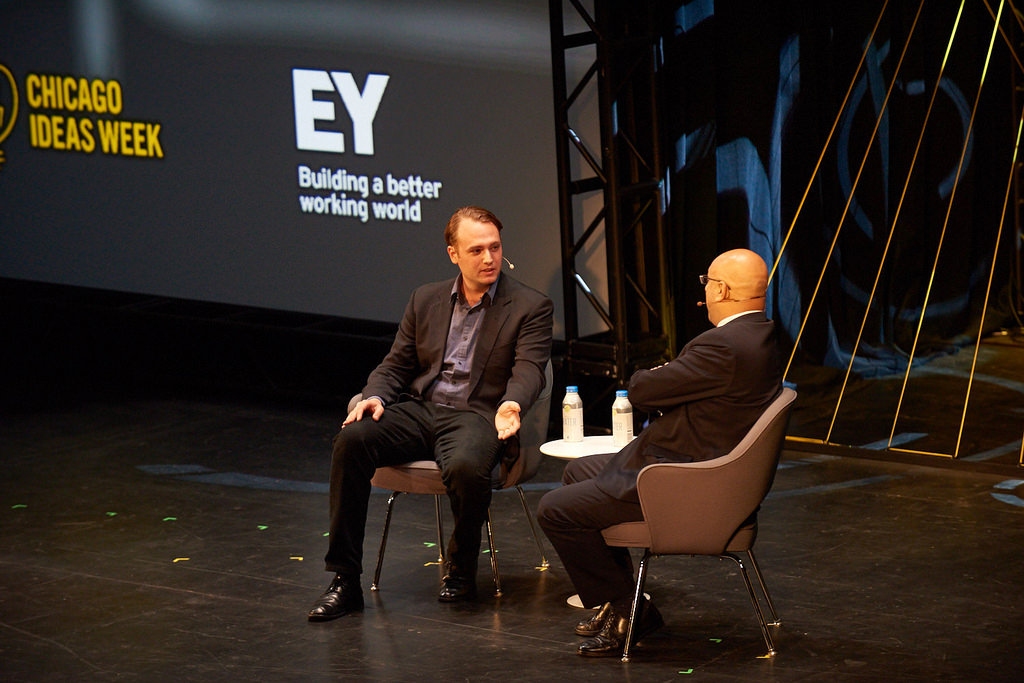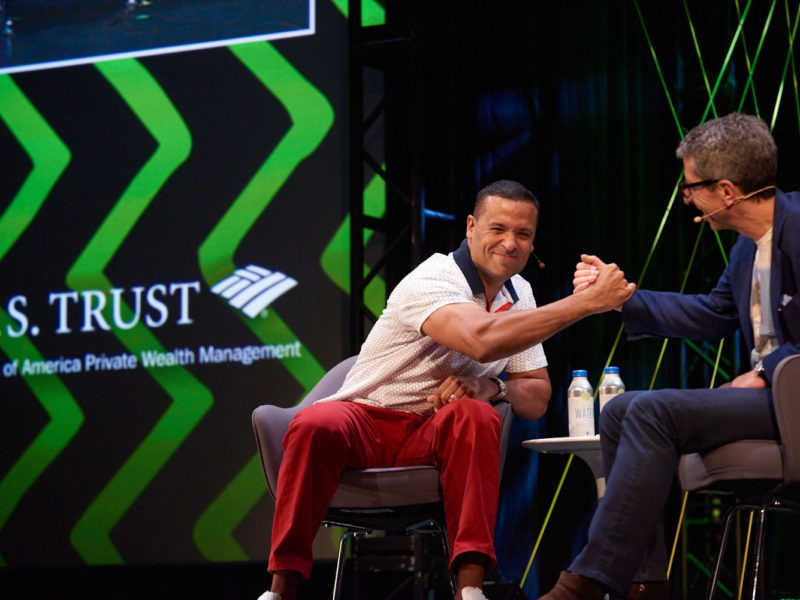
Going Beyond a Mission Statement: Ernst & Young on Why Businesses Need to Be Purpose-Driven to Survive
Uniting your employees behind a common purpose makes for a better work environment, but it also helps companies retain top talent, provide a better customer experience, and even increase their revenue. George Brooks, Americas Director for People Advisory Services at Chicago Ideas sponsor Ernst & Young, talked to us about how companies can go beyond mission statements to incorporate “capital P” Purpose into their DNA.
What is purpose, as you define it to businesses you work with?
The definition of “capital P” Purpose we’ve been using at Ernst & Young is “having an inspirational reason for being that’s grounded in humanity that inspires a call to action.” Purpose fills us with hope, and it pulls us forward. Who doesn’t want that?
Why be purpose-driven?
If you’re not changing your work environment and how you go about managing your workforce, you’re going to fall behind. Companies that have turnover problems say their mission is to attract and retain. That’s pretty rough. Most missions should be to inspire and innovate, and to get way beyond that. I think Millennials voiced it, but who doesn’t want to have a sense of making a contribution or having a “why”? We have to go to a “we” environment to create that. Purpose is a shift of goals and performance orientation from a “me” to “we.”
What’s needed to begin a purpose-led transition?
You have to start with leadership. You need leaders that are purpose-driven themselves and can connect others to lead for the greater good. And then activating change through decision making. As you’re making decisions, when you insert your purpose as part of the decision criteria, it can completely change your decision.
The second thing that gets you to the “we” is how you measure people. Instead of just individual productivity measures, you start adding measures that require you to work with others to make the whole successful. Think of a call center: “I nailed my calls. I was fast. I was efficient. I got ’em done. But my hand-offs were poor, and someone else got poor reviews, because I was passing on escalations.” That’s a “me,” and you have to move from a “me” to “we”: how did the center do as a whole? How well did team members work together to make the customer happy?
How does being purpose driven help companies in the marketplace? It sounds great for employees, but can it actually increase revenue?
As the manual, tedious work is going to start to get done by machines, our work to improve customers’ experience is going to require us to be innovative and inspire. I love this example of a major restaurant chain that’s started using phone-based apps and onsite, self-service touch screen kiosks that allow you to place and customize your order. This means the restaurants won’t need as many order-takers, but at the same time, they are starting table service, so your food is brought to you and you don’t have to stand around and wait. This company previously measured their employees’ performance by how well they processed an order, but now, it’s going to be, “What is the customer experience when they’re working in the restaurant?” They’re planning to hire more people than last year, and many of them will be onsite and focused on hospitality and good customer service.
More than they did last year? That to me is surprising, especially in terms of how people think about technology in the workforce.
Exactly. And their stock price was the highest it’s ever been in the history of the company when they announced it. It’s a triple win: You have happier shareholders, happier employees, and you have happier customers. Employees are being asked to focus on the human, social side of serving a customer, all the way through the experience.
Now that the tactical stuff is going away, well then why are you going to work? I’m not going to work to just process orders. I’m now interacting with others to change the experience with customers to ultimately achieve some purpose. That’s the direction we’re heading. To succeed in a digital age, we have to get back to humans.




